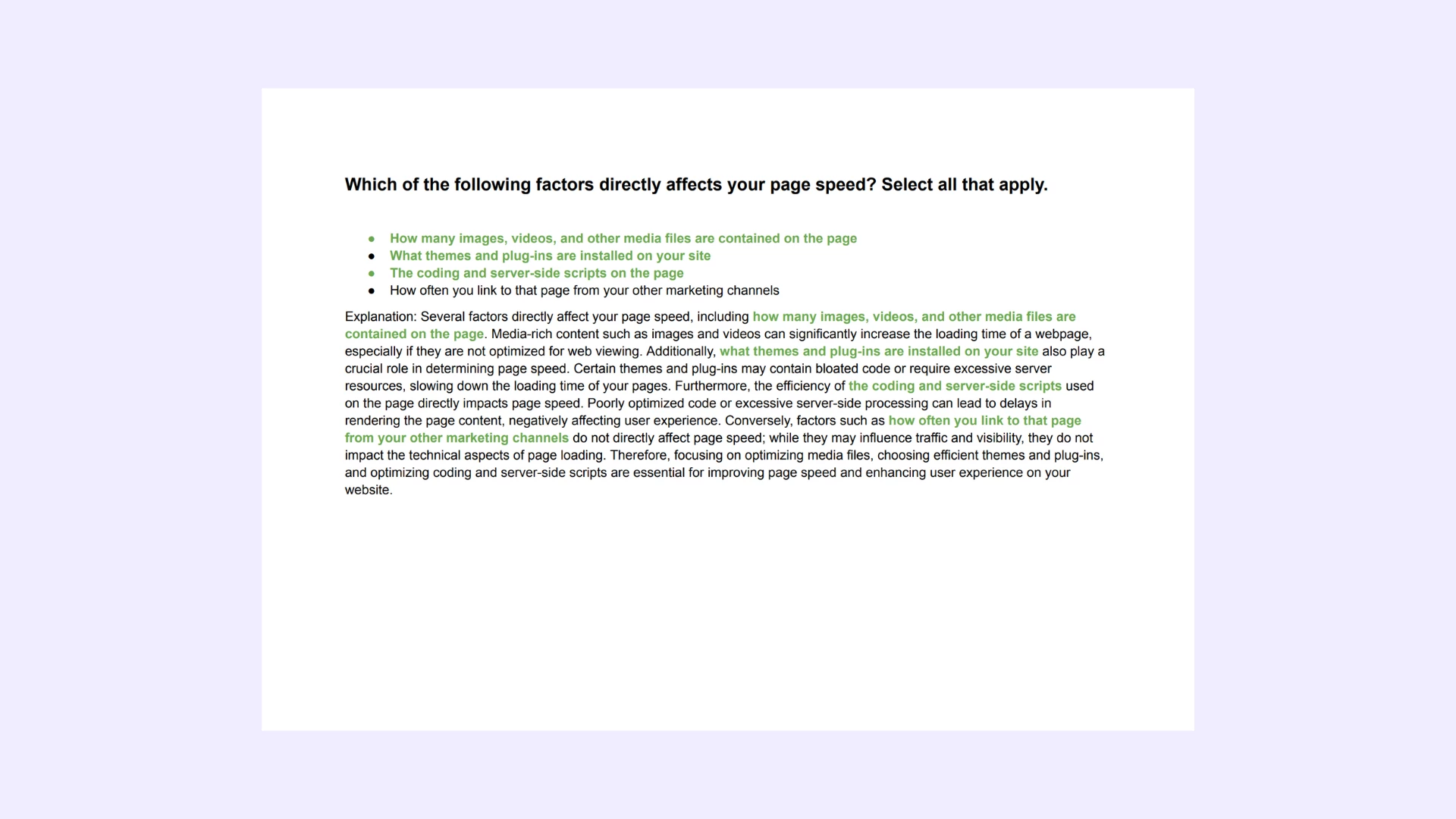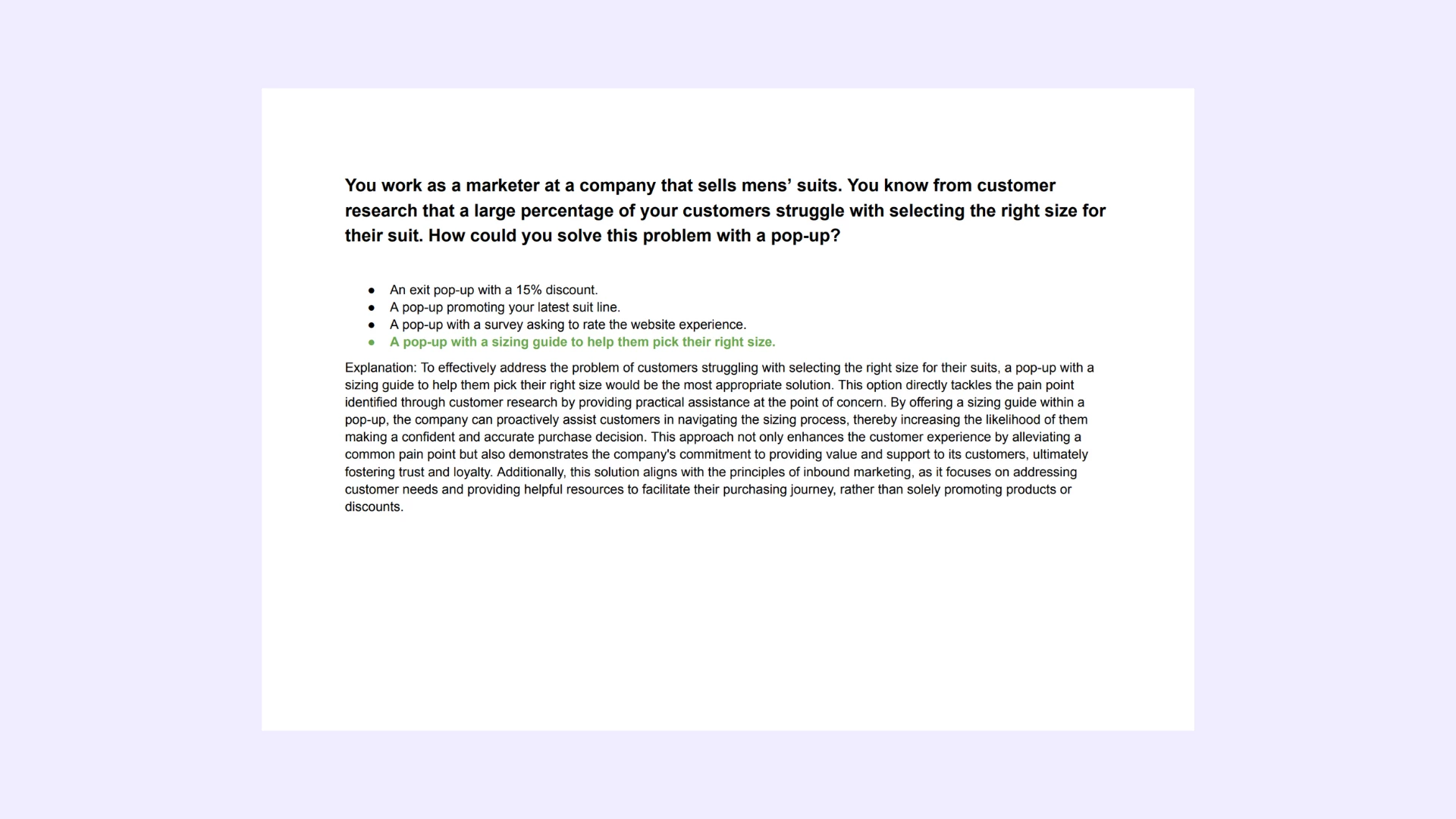Select all that apply. When might you use a redirect?
When moving your site to a new domain
When you've moved a page to a new URL
When you have multiple URLs for your site
When you need to prevent a page from appearing in search results

HubSpot Roll. Includes Answers for Every Real HubSpot Certification Exam.
All-in-One: Get all HubSpot exams answers with explanations in one bundle. This package includes answers for every current HubSpot certification. Regular updates to reflect the latest exam version. -> See what's included.


Need a single cerification exam answers? Check out our -> list of certification exams answer keys. Learn Smarter. Obtain or Renew your certificates with peace of mind!
Explanation: Select all that apply. When might you use a redirect?
Explanation: When might you use a redirect? You would use a redirect **when moving your site to a new domain**, as this ensures that users who visit the old domain are automatically directed to the new one, preserving traffic and user experience. Similarly, you would use a redirect **when you've moved a page to a new URL**, allowing users who attempt to access the old URL to be automatically sent to the new one, preventing broken links and maintaining the accessibility of your content. Additionally, you would use a redirect **when you have multiple URLs for your site**, as this helps in consolidating link equity and preventing duplicate content issues by directing all URLs to a single preferred version, improving SEO performance and user experience. However, you would not use a redirect when you need to prevent a page from appearing in search results, as redirects typically indicate to search engines that the content has moved rather than being removed entirely, potentially leading to indexing and ranking issues.

Special Bundle Offer HubSpot Roll. All in One
Note: We conduct daily checks for updates on the exam, ensuring that the file contains the most recent questions from the actual certification program.
Questions | Answers | Explanations. FREE Updates.
You may also be interested:
- Special HubSpot bundle offer - all HubSpot exams in one
- HubSpot CMS for develpers certification exam answers
- HubSpot CMS for develpers II certification exam answers
- HubSpot content hub for marketers certification exam answers
- HubSpot content marketing certification exam answers
- HubSpot contextual marketing certification exam answers
- HubSpot digital advertising certification exam answers
- HubSpot digital marketing certification exam answers
- HubSpot email marketing certification exam answers
- HubSpot frictionless sales certification exam answers
- HubSpot growth driven design certification exam answers
- HubSpot inbound certification exam answers
- HubSpot inbound marketing certification exam answers
- HubSpot inbound marketing optimization certification exam answers
- HubSpot inbound sales certification exam answers
- HubSpot integrating with HubSpot I foundations certification exam answers
- HubSpot marketing hub software certification exam answers
- HubSpot reporting certification exam answers
- HubSpot revenue operations certification exam answers
- HubSpot sales enablement certification exam answers
- HubSpot sales hub software certification exam answers
- HubSpot sales management certification exam answers
- HubSpot sales software certification exam answers
- HubSpot seo certification exam answers
- HubSpot seo II certification exam answers
- HubSpot service hub software certification exam answers
- HubSpot social media marketing certification exam answers
- HubSpot social media marketing II certification exam answers